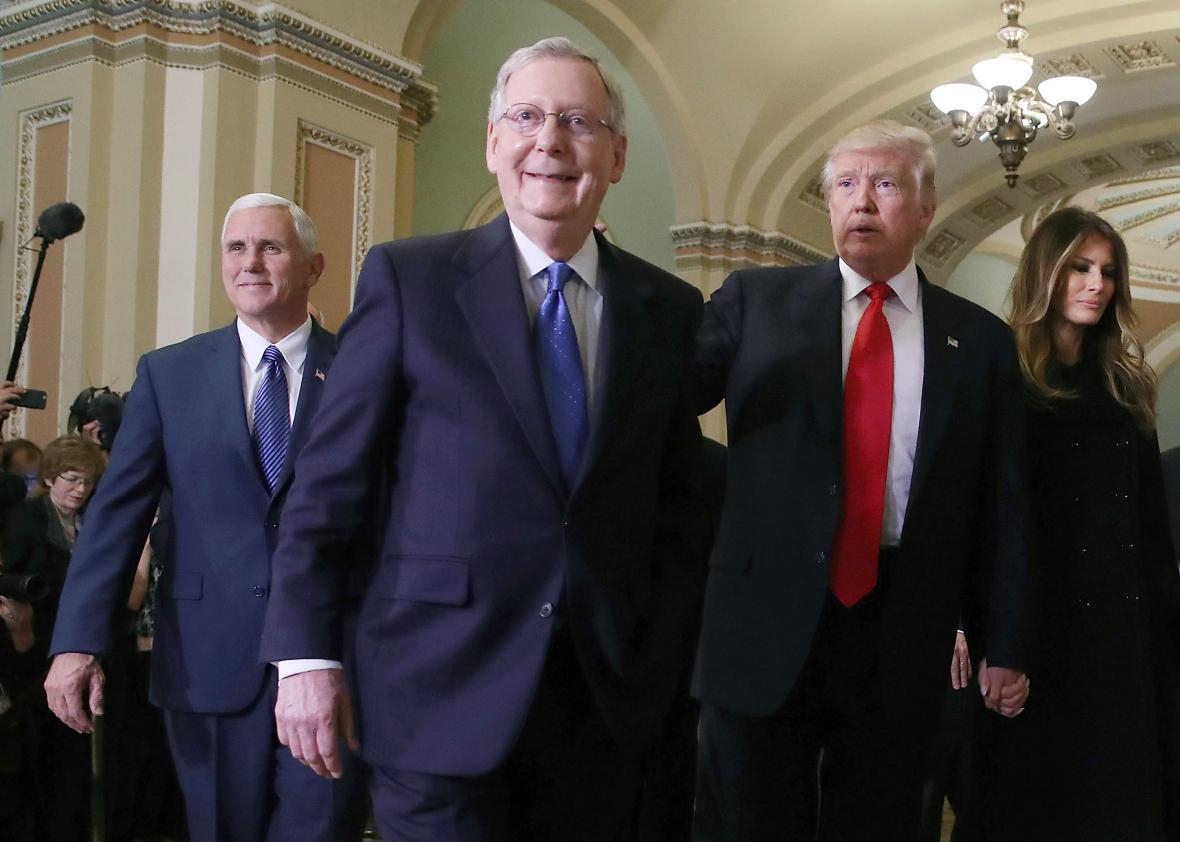Much of what goes down in Washington during the next four years will depend on what Senate Majority Leader Mitch McConnell decides to do with the filibuster. Right now, giddy conservatives are agitating to incinerate the old rule, which requires 60 votes to cut off Senate debate (and therefore, a de facto 60 votes to pass a bill). If McConnell bends to their demands, we’re all in for a right-wing jamboree on Capitol Hill, since Republicans will be able to enact their agenda on the brute strength of their likely 52-vote majority. If McConnell keeps to tradition and preserves the filibuster, however, President Trump and the GOP are going to have to find Democratic allies to pass some of their legislation.
At the moment, McConnell, who sometimes gets described as a Senate “institutionalist,” sounds hesitant to go nuclear on the filibuster, in part because it could empower Democrats down the line. “Frequently new majorities think it’s going to be forever. Nothing is forever in this country,” he told reporters, according to the Hill. “We’ve been given a temporary lease on power, if you will. And I think we need to use it responsibly.”
It’s possible the senator from Kentucky will change his tune the moment Democrats start trying to block any major legislation. But here’s why I think he might be sincere. Over the long term, keeping the filibuster around actually puts conservatives at a structural advantage over liberals in Washington.
Come next year, Senate Republicans will be able to accomplish many of their goals using the budget reconciliation process, which prevents filibusters on certain tax and spending legislation. Want to repeal most of Obamacare? Use reconciliation. Want to pass massive tax cuts? Make like George W. Bush, and do it with reconciliation. Want to diminish the safety net by block-granting Medicaid, ending Medicare as we know it, or slashing food stamps? Reconciliation is your all-in-one tool (how do you think the Senate passed welfare reform back the ’90s?). It just takes 51 votes.
Reconciliation does have limits. For instance, it can’t be used to tinker with regulations, which means it’s not very useful for dealing with things like Dodd-Frank. But Republicans may consider that a feature, not a bug. After all, Democrats can’t really use reconciliation to create broad new regulations either. (Yes, Democrats did use the procedure to make final tweaks to Obamacare, but first they had to pass a version through the House and Senate normally.) That means major liberal endeavors that require big regulatory changes need to go through the standard legislative process, including overcoming the 60-vote filibuster threshold. Meanwhile, if Republicans want to seriously undercut existing regulations, they can do it by having agencies rewrite them (even if that takes time) or relaxing enforcement.
In short, the Senate’s current rules are better suited for tearing down progressive government than they are for building it. And if, like McConnell, you’re playing a long game to maintain a conservative policy status quo in this country, leaving the chamber’s procedures undisturbed might seem prudent.
